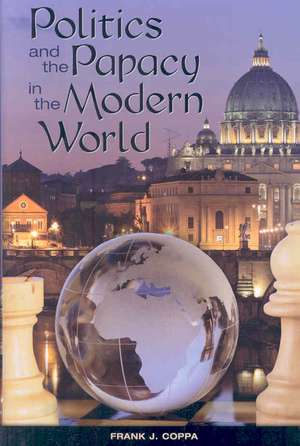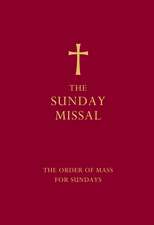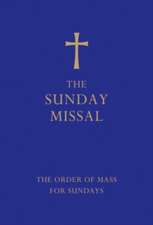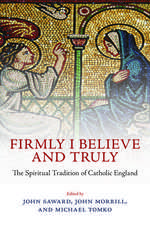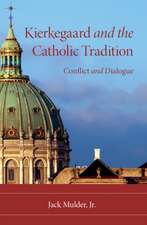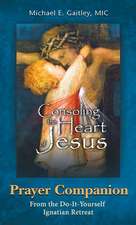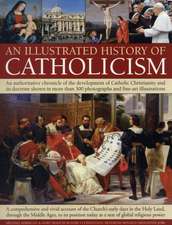Politics and the Papacy in the Modern World
Autor Frank J. Coppaen Limba Engleză Hardback – 29 iun 2008 – vârsta până la 17 ani
Preț: 323.64 lei
Preț vechi: 393.10 lei
-18% Nou
Puncte Express: 485
Preț estimativ în valută:
61.93€ • 66.22$ • 51.63£
61.93€ • 66.22$ • 51.63£
Carte tipărită la comandă
Livrare economică 18 aprilie-02 mai
Preluare comenzi: 021 569.72.76
Specificații
ISBN-13: 9780275990299
ISBN-10: 027599029X
Pagini: 288
Dimensiuni: 156 x 235 x 28 mm
Greutate: 0.6 kg
Editura: Bloomsbury Publishing
Colecția Praeger
Locul publicării:New York, United States
ISBN-10: 027599029X
Pagini: 288
Dimensiuni: 156 x 235 x 28 mm
Greutate: 0.6 kg
Editura: Bloomsbury Publishing
Colecția Praeger
Locul publicării:New York, United States
Notă biografică
Frank J. Coppa is Professor of History and Director of the university's doctoral program in Modern World History at St. John's University. He is an Associate Editor of the New Catholic Encyclopedia. An expert in Modern European, Modern Italian, and Papal history he has published widely in all three areas. He is the recipient of numerous grants including Fulbright and National Endowment for the Humanities as well as University grants. He has served as general editor and contributor to The Dictionary of Modern Italian History (1985), The Encyclopedia of the Vatican and Papacy (1999), The Great Popes through History (2002), and The Encyclopedia of Modern Dictators (2006) among others. Most recently he has published The Papacy, the Jews, and the Holocaust (2006).
Cuprins
I Introduction: Rome and the Powers in the Modern AgeII The Papacy Between Revolutionary Upheaval, and Restoration, 1789-1849III Rome Grapples with Liberalism, Nationalism, and Sectionalism, 1849-1878IV The Papacy Confronts Social Issues, Modernism, and International Relations, 1878-1914V Benedict XV, the World War, and the League of Nations, 1914-1922VI The Vatican in an Age of Totalitarianism and Anti-Semitism, 1922-1939VII The Vaticans Impartiality, Silence, and Internationalism during World War II and Beyond.VIII The Papacy and the Cold War: The Confrontation between Catholicism and CommunismIX The Second Vatican Council, Aggiornamento, and Accommodation with the Modern World, 1958-1978X The Contemporary Papacy, Shuttle Diplomacy, and the Collapse of Communism, 1978-2005XI Quo Vadis Benedict XVI?XII Conclusion: Continuity and Change in Papal PolicySelect Bibliography
Recenzii
Using his sources scrupulously, Coppa offers a solid synthesis of the Catholic dimension of modern Christian history.
.a useful, accessible survey of relations between secular governments and the modern Roman pontiffs.
.a useful, accessible survey of relations between secular governments and the modern Roman pontiffs.
